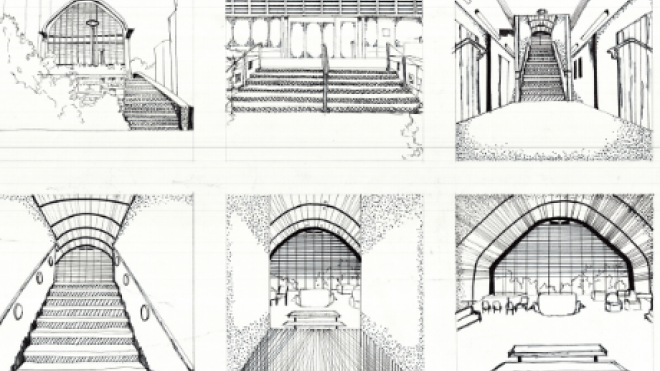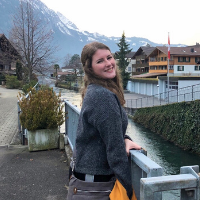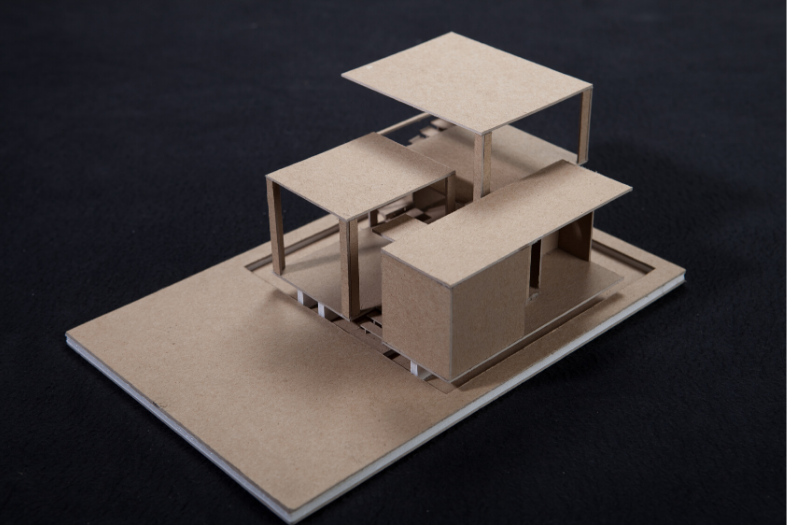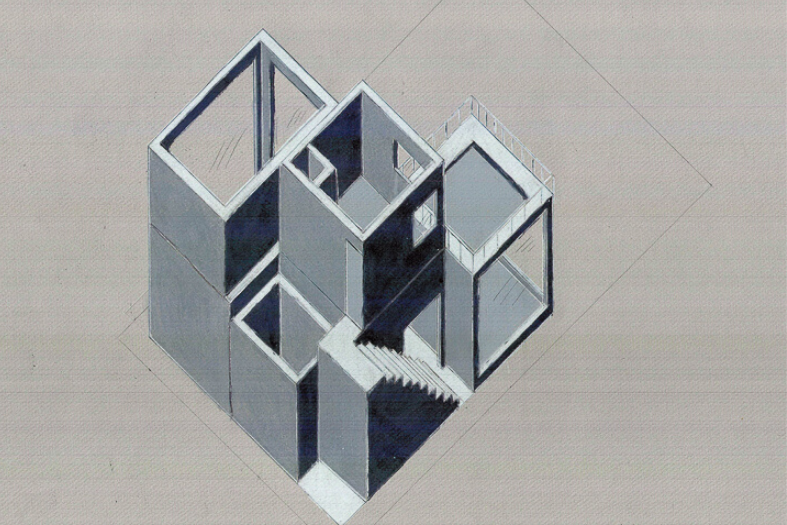High School Summer Academy to be Transformative Online Experience for Future Architects
The High School Summer Academy in Architecture is going online with innovative software, virtual field trips, professional consultations and as always, in-depth personal connections

From a toolkit delivered to your house, to virtual building tours and studio visits, to developing a professional portfolio, this year’s online Summer Academy in Architecture offers rising high school sophomores and juniors an immersive glimpse into the world of design.

“We’re going to be exposing students to the life of an architect, both as a student and as a professional,” said Program Coordinator Julia Bernert, who developed the exciting new curriculum.
Associate Dean of Architecture Gregory Laramie said about 35% of applicants to RWU's undergraduate Architecture program have had some sort of pre-college experience, and it sets them apart from the crowd.

"We look at that very positively, whether it’s at Roger Williams or another school,” he said. “If someone goes through one of these programs and likes it and still wants to apply to architecture school, then there’s a pretty good chance they’ll be successful in school because it shows the enthusiasm needed to thrive in college. As students are thinking about college, this gives them the opportunity to test out what it’s like to be in architecture school without making a huge time or financial commitment.”
Junior RWU Architecture major Jenna Carruba completed the Summer Academy in 2016. She gained drawing, building and photo editing skills.

"My favorite part about the program, alongside learning a lot of new skills, was the friendships I made" said Carruba. "I became super close with almost every person at the camp, and about seven of us ended up going to RWU. It was really nice having those solid friendships in a new place."
Carruba didn't initially see herself attending RWU because it was only five minutes from her home, but the supportive community and extensive resources in the Architecture program quickly made it her first choice.
Zachary Baker also completed the Summer Academy in 2016 and is now a sophomore in the RWU School of Architecture.

"After completing the Summer Academy, I still was not sure where I would go to college," said Baker. "When looking at other schools I would always compare them to the time I spent at RWU. I chose RWU because I could not find another school that made me feel more welcome and at home."
This will be the Summer Academy’s 24th year, and its first year being offered completely online. With the transition to remote learning come several perks.
One is that Summer Academy students who end up enrolling in RWU School of Architecture receive an additional $1,500 scholarship for their first year, on top of any other aid.
Another is the package students will receive in the mail before beginning the Summer Academy on July 5. Normally, the high schoolers are given a list of items to purchase, but this year a kit will be sent right to their door, and is included in the academy's tuition. It contains model pieces, drawing tools, a sketchbook and other supplies, so participants can complete professional projects alongside esteemed faculty, undergraduate and graduate teaching assistants, as well as fellow aspiring architects.

“The introduction to the program arrives in the mail, and then you log in and meet everyone, which I think is really exciting,” Bernert said.
Having had the experience of teaching online for a semester, the Architecture faculty know which tools work well, and how to make this a dynamic, interactive experience. Professors will use software that allows participants to draw together from their individual homes.
“There’s going to be a lot of making of things and sharing it online,” said Laramie. “It isn’t a rote, normal high school online session.”
For the first time, Summer Academy students will complete a team design challenge, modeled after the traditional architecture charrette, an intense period of design or planning. They will be given an assignment in the morning and work with full-time RWU students to finish it by the end of the day.
Along with designing together, high school participants can speak with Teaching Assistants (TAs), who are current RWU architecture students, informally for an hour each evening.
“They will talk about their work but also hear about what it actually is like to be in architecture school from them, without being in the formal situation of a class,” said Bernert.
Other opportunities include speaking with professional architects, portfolio consultations, and a final virtual gallery to present their work.

All participants earn two college credits. They receive a Roger Williams email address and access to resources on Bridges, which they have can use after Summer Academy is over. Not only does the technology stay with them after the two weeks, but so do the people they meet.
“They stay in touch with the TAs and they stay in touch with the faculty,” said Bernert. “We often end up writing letters of recommendation. We help them once they decide they want to apply to college. We give them portfolio reviews.”
The personal connections are always key, no matter whether students are on-campus or in their homes.
“There is a level of in-depth connections that are made,” said Laramie. “There’s a real sense of the faculty and teaching assistants caring for students and they feel that right away.”
The 2020 Summer Academy in Architecture will run Sunday July 5 to Friday July 17. It is open to high school students who have completed their sophomore or junior years. U.S. residents and international students are welcome. To learn more about Summer Academy, click here. Apply by June 15th to receive your toolkit.